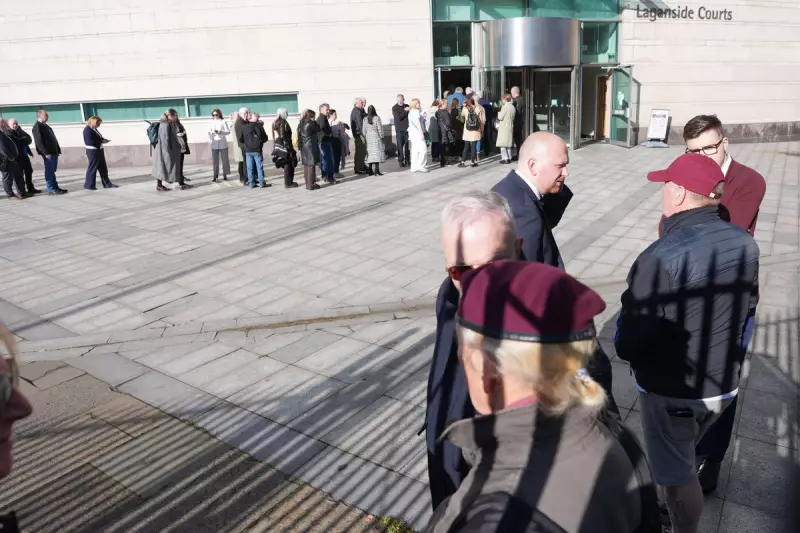
The British government faces a significant legal challenge over its handling of historical investigations into Northern Ireland's Troubles, as families of victims demand justice for decades-old atrocities.
Legal Battle Over 1971 Londonderry Shootings
The Attorney General for Northern Ireland is taking the UK government to court following its refusal to establish a fresh inquest into the deaths of three men during a violent incident in Londonderry in 1971. The case involves one of the most controversial periods of the Troubles and could set important precedents for how historical investigations are handled.
The Tragic Events of July 1971
On July 8th, 1971, soldiers from the Parachute Regiment opened fire during disturbances in the Creggan estate, resulting in the deaths of three local men. The incident occurred during a period of intense civil unrest and came just months before the infamous Bloody Sunday shootings that would further devastate the community.
The victims included 28-year-old Danny Doherty, 20-year-old William McGreanery, and 41-year-old Charles McCafferty. Their families have maintained for over five decades that proper accountability has never been achieved.
Government's Controversial Position
The Northern Ireland Office has defended its decision not to order a new inquest, citing the need to balance the pursuit of justice with other considerations. A government spokesperson stated that while they acknowledge the suffering of victims' families, they must consider "the wider context and the need to support reconciliation."
This position has drawn sharp criticism from political representatives and human rights organisations who argue that it represents a failure to address historical injustices properly.
Political Reactions and Community Response
SDLP leader Colum Eastwood has been vocal in his condemnation of the government's stance, describing it as "completely unacceptable." The Foyle MP emphasised that victims' families deserve truth and accountability, regardless of how much time has passed.
The case comes amid ongoing tensions regarding how Northern Ireland should address its troubled past, with various political parties and community groups expressing differing views on the best path toward reconciliation while ensuring justice for victims.
Broader Implications for Historical Investigations
This legal challenge represents more than just a single case - it could have far-reaching consequences for how numerous other historical incidents from the Troubles era are investigated. Many families across Northern Ireland are watching the outcome closely, as it may determine whether similar inquests into other controversial incidents can proceed.
The court's decision is expected to provide important clarity on the government's obligations regarding historical investigations and the rights of victims' families to seek justice through proper legal channels.





